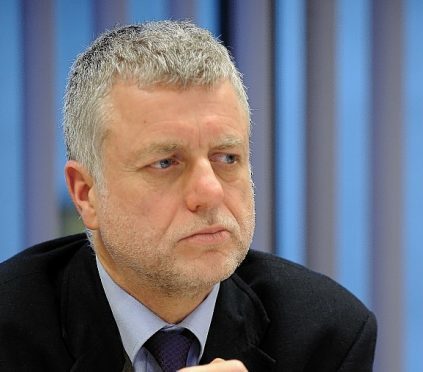One of the key architects of the controversial named person policy has said he has been left “dumbfounded” by the furore over the scheme – insisting it has been a “success story” in the Highlands.
Bill Alexander, Highland Council’s director of care and learning, was instrumental in developing a practice model that is scheduled to be implemented nationwide from August, despite vocal opposition.
The Press and Journal revealed yesterday that the named person overseeing the welfare of neglected two-year-old Clyde Campbell had not contacted his family in the 17 months leading up to his cot death in Inverness.
But Mr Alexander claimed that a common mistake was the “conflation” of named person and child protection, insisting that other public sector staff had been in regular contact with the tragic family and that his cot death could not have been prevented by the named person.
Speaking to the Press and Journal in his office at Glenurquhart Road in Inverness, Mr Alexander outlined the Highland origins of the policy, which he claimed had been turned into a “political football”.
“We were working with families back in 2006, 2007, 2008 about how we could have less bureaucracy, how we could support families better,” he said.
“What families said was ‘you understand all this, but for us it’s quite intimidating, can there not be a named person that we can go to if we’ve got a worry?’. So that was the phrase we used.
“We said ‘well you do have a named person. If you’re not at school yet it’s your health visitor. When the child’s born it’s the midwife, when they’re at school it’s the head teacher – that’s the named person you should speak to’. We just then called it that.”
The practice began to be fed into national policy discussions as the SNP government consulted on its wider Getting It Right For Every Child policy.
“The named person was agreed when it was the Labour-Lib Dem coalition. There was talk about they might put it in legislation. It didn’t actually happen then, and then the SNP came in and there was talk about putting it into legislation,” said Mr Alexander.
“We just built all this up. I had to be convinced that this named person thing should be a core component, and then I had to go to the Scottish Government.
“The irony is that initially the Scottish Government said ‘no, we’re doing enough, it’s alright, and is this something that is critical?’
“They had to consult within themselves, they had to talk to other authorities and other partners, and then it got included.
“It was policy from 2005, but from 2008 there was what we call a practice model. And the practice model we put into place by 2010.
“It was described in the papers as ‘pilots’. it wasn’t being piloted it was just people were doing it, it was rolling out.”
Asked what he believed sparked the controversy, Mr Alexander said: “We were totally dumbfounded by it. It came out of the blue.
“I think when it went through parliament, I mean I had all sorts of meetings with politicians and other interest groups, and the lawyers said it was difficult to legislate for.
“There were a few questions about the relationship between the state, if you like, and the family. They weren’t issues, just questions, teasing it out.
“It was obvious that the Conservative Party were less keen, so I had lots of discussions with Liz Smith, but it was always very open and positive and friendly discussion, and she wasn’t so much against it, but not entirely convinced, so when it came to the vote they abstained.”
Mr Alexander was particularly critical of the campaign group No to the Named Person Scheme (NO2NP), which he said spoke “just rubbish, and it has no basis in practice, in research or whatever”.
He added: “We’re very proud. It’s a success story.”
